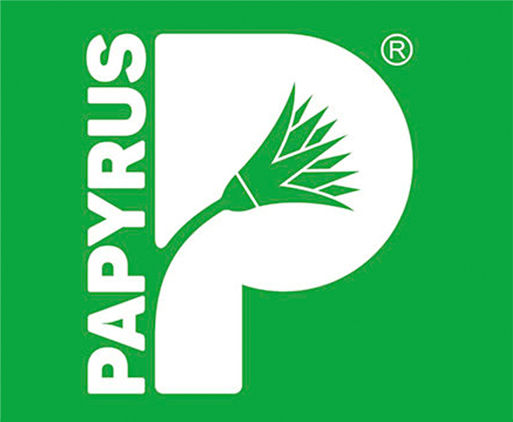
Close

As already highlighted by its etymon, “Papyrus” is all about paper. This project aims at converting waste paper to gifts and to raising environmental awareness among the community.
Eager to find solutions in managing solid waste that threaten our health as well as our environment, Imam Sadr Foundation launched the “Papyrus” project earlier in 2016.
Just like all its other programs, the Foundation customized “Papyrus” to fit in its four dimensional pillars which consist of education, health, women’s empowerment and local development. How does this come?
“Papyrus” is, undoubtedly, a strategic project for sustainable development. It aims at spreading environmental culture among students and parents and sparkling positive impact on society and health. The concept is to “re-use waste paper and convert it into eco-friendly handicraft”, to build capacity and to stimulate innovation.

“Papyrus” is, undoubtedly, a strategic project for sustainable development. It aims at spreading environmental culture among students and parents and sparkling positive impact on society and health. The concept is to “re-use waste paper and convert it into eco-friendly handicraft”, to build capacity and to stimulate innovation.
The project targets all types of recycled paper products. Recyclable paper and its derivatives are collected from all schools, health centers and facilities of the Foundation. The foundation shall expand this collection at a future stage to other institutions. The feedstock is transferred to “Papyrus” workshop located in Amiryeh to generate the reusable materials such as stationery, book notes, gift boxes and paper bags/wrap, promotional materials and many more.
Recycled paper has a remarkable economic benefit. It helps in reducing the consumption of natural raw material required for paper manufacture. It creates job opportunities and thus reduces unemployment within the community, especially the feminine cohort. An additional benefit is the environmental advantage as this process minimizes the emitted pollution from burning or burying paper. While the decreased demand on wood and fiber plays a role in maintaining the arboreal resources and boosts their ability to absorb carbon dioxide existing in the atmosphere.
Locally and within the Lebanese territories, Papyrus contributed so far in providing Studio Kawakeb the required custom-made promotional materials during his participation in “Beirut Design Week-Sustainable Ideas” held on May 20th, 2016. The promotional materials consisted of invitations, posters, catalogs, flyers, paper bags, etc. Papyrus participated also at the UNIFIL Local Food and Handicrafts Expo in Chamaa (Naqoura) on December 9th, 2016.
More importantly, this workshop plays a significant educational role in promoting for a sound environmental culture. Children understand the value of their paper waste. They sort them into the designated containers; they convey their new habits to their families and relatives. Imam Sadr Foundation integrated the topic “Environment” in the curricula and programs of all its educational institutions.
Papyrus is today a point of interest for students and solicitous people. It also attracts partners and activists from environmental organizations such as the Collective for Research and Training on Development-Action (CRTDA).
You are welcome to visit “Papyrus” workshop and exhibition. The workshop receives school students and groups as well.
For more information, Ms. Badria Osta, Project Manager, will be pleased to answer all your questions.
You can reach her on the workshop’s landline: 00961 7 320100.